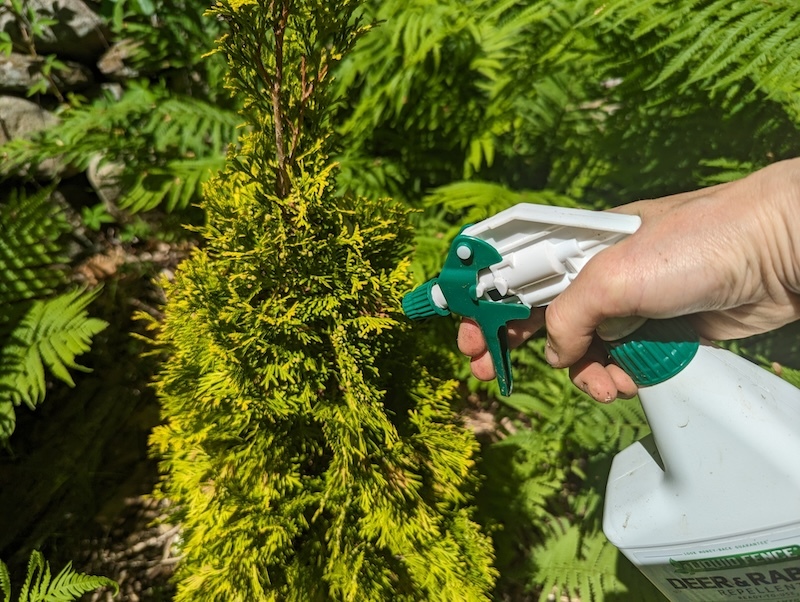Arborvitaes (Thuja) are stalwart evergreen shrubs and trees that grow readily, take well to pruning, and create a nice-looking border, hedge, or privacy screen. Hardy from USDA zones 3-7, they have an attractive pyramidal shape and wavy, emerald-green textured foliage.
Although reports vary across the country, deer have been known to snack on Arborvitae. Some say that Thuja occidentalis (White Cedar) is tastier to deer than Thuja plicata (Western Red Cedar). Also, when hungry enough, deer will eat – or at least sample – almost anything.
According to Rutgers University, arborvitae is occasionally to frequently severely damaged on their rating scale from Rarely Damaged to Frequently Severely Damaged, depending on the species. This resource recommends using barriers such as fences or burlap, or deer repellents for plants at risk of damage.
| Rarely Damaged |
| Seldom Severely Damaged |
| Occasionally Severely Damaged |
| Frequently Severely Damaged |
Keeping Deer Away from Arborvitae
Fencing, wire caging, or burlap wrapping can work, but these can be costly, bulky, and incompatible with your landscape vision. Any fencing needs to be at least 8 feet tall to keep these skilled jumpers out. The most important time to protect evergreens like arborvitae is winter through early spring, when other food sources are unavailable.
We recommend using a deer repellent. They usually need to be reapplied throughout the season – particularly after it snows or rains – but the effort is worth it to protect your favorite plants! You can make your own spray using eggs, garlic powder, and water. Or try hanging dryer sheets or Irish Spring soap nearby.

Will Arborvitae Come Back After Deer Eat Them?
If some green needles still remain on the branch, be patient – there’s a good chance that branch will recover. Prune off any branches that have been stripped bare in spring or summer, water well, and fertilize lightly. Pruning in fall and winter is not recommended.
Sources: Rutgers New Jersey Agricultural Experiment Station ‘Landscape Plants Rated by Deer Resistance’ 2018
 |
Author Erica Browne Grivas - Published 10-08-2021 |
